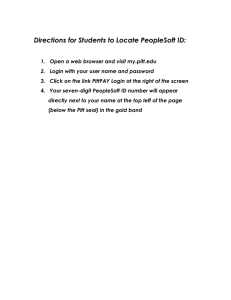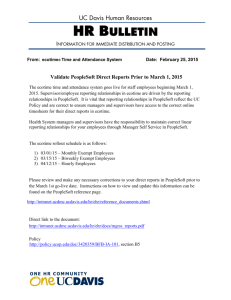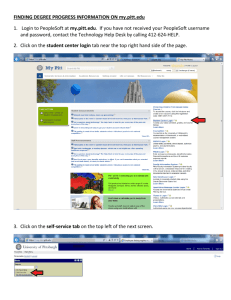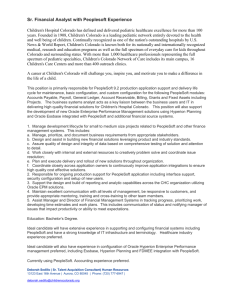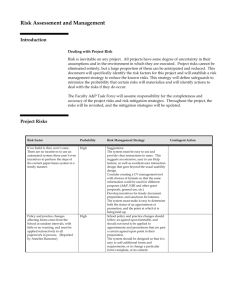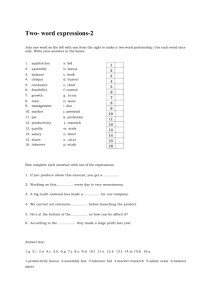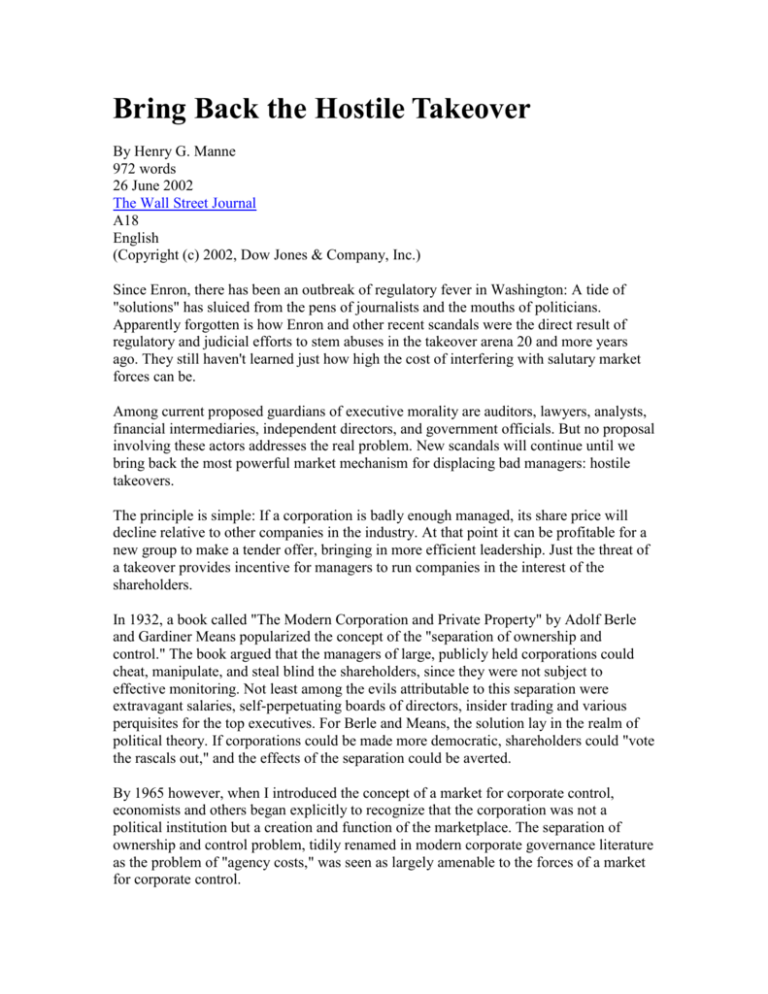
Bring Back the Hostile Takeover
By Henry G. Manne
972 words
26 June 2002
The Wall Street Journal
A18
English
(Copyright (c) 2002, Dow Jones & Company, Inc.)
Since Enron, there has been an outbreak of regulatory fever in Washington: A tide of
"solutions" has sluiced from the pens of journalists and the mouths of politicians.
Apparently forgotten is how Enron and other recent scandals were the direct result of
regulatory and judicial efforts to stem abuses in the takeover arena 20 and more years
ago. They still haven't learned just how high the cost of interfering with salutary market
forces can be.
Among current proposed guardians of executive morality are auditors, lawyers, analysts,
financial intermediaries, independent directors, and government officials. But no proposal
involving these actors addresses the real problem. New scandals will continue until we
bring back the most powerful market mechanism for displacing bad managers: hostile
takeovers.
The principle is simple: If a corporation is badly enough managed, its share price will
decline relative to other companies in the industry. At that point it can be profitable for a
new group to make a tender offer, bringing in more efficient leadership. Just the threat of
a takeover provides incentive for managers to run companies in the interest of the
shareholders.
In 1932, a book called "The Modern Corporation and Private Property" by Adolf Berle
and Gardiner Means popularized the concept of the "separation of ownership and
control." The book argued that the managers of large, publicly held corporations could
cheat, manipulate, and steal blind the shareholders, since they were not subject to
effective monitoring. Not least among the evils attributable to this separation were
extravagant salaries, self-perpetuating boards of directors, insider trading and various
perquisites for the top executives. For Berle and Means, the solution lay in the realm of
political theory. If corporations could be made more democratic, shareholders could "vote
the rascals out," and the effects of the separation could be averted.
By 1965 however, when I introduced the concept of a market for corporate control,
economists and others began explicitly to recognize that the corporation was not a
political institution but a creation and function of the marketplace. The separation of
ownership and control problem, tidily renamed in modern corporate governance literature
as the problem of "agency costs," was seen as largely amenable to the forces of a market
for corporate control.
For a brief period in the late '50s, until the mid-'60s, when modern hostile takeover
techniques were perfected, we had a pretty much unregulated market for corporate
control. Shareholders received on average 40% over the pre-bid price for their shares. But
the chorus of screams by threatened executives and their lawyers became politically
excruciating enough that Congress, in 1968, passed the Williams Act, which made it
vastly more expensive for outsiders to mount successful tender offers. The highly
profitable element of surprise was removed entirely.
The even stronger inhibition on takeovers resulted from actions taken by state legislatures
and state courts in the '80s. The number of hostile tender offers dropped precipitously and
with it the most effective device for policing top managers of large, publicly held
companies.
There continue to be changes of control in publicly held corporations even if hostile
tender offers are discouraged. But now, with the legal power to shift control in the hands
of the incumbents, they, rather than shareholders, will receive any premium paid for
control. Ironically, this is the same premium that has been made larger by their own poor
management.
This transfer of control may take the form of a merger, or simply a series of agreed-upon
high-level resignations after a new board has been put in place. The compensation paid
the managers for their assent to such a change may take the form of a lucrative consulting
arrangement, stock or stock options in the acquiring company, a generous severance
package, or some other bonus. But the salient fact in each of these situations is that the
managers and not the shareholders receive the premium being paid for control.
It should come as no surprise then that, as hostile takeovers declined to 4% from 14% of
all mergers, executive compensation started a steep climb, eventually ending for some
companies with bankruptcy and management scandal. The largely mythical abuses
alleged to result from an unfettered takeover system were less costly to investors than
what has occurred since.
Every statute, adjudication, or regulation that in any way inhibited the free functioning of
the market for corporate control simply raised the real cost of ousting inappropriate
managers. Dollar for dollar, every increase in those costs could be claimed by incumbent
managers, either in greater rewards to themselves or in inefficient management policies.
Until the real cost of wastefulness equals the cost of a successful takeover fight, they
remain secure behind a legal barrier to their ouster, at least until the whole house of cards
collapses. Enron is a predictable consequence of rules that inhibit the efficient
functioning of the market for corporate control.
The solution is straightforward but by no means simple: repeal and reverse all the many
statutes, rules, and case holdings that interfere with tender offers. American corporations
would have to restructure themselves, as they did in the '70s and '80s, to live in a more
deregulated market. There would be heavy human costs in the ensuing dislocations, and
we could expect a screeching replay of the spurious arguments that won the day in the
late '60s and mid-'80s.
But with such a reversal of policy, however unlikely, executive compensation would
begin to plummet, there would be less pressure on accountants to cook the books, and
American corporations would probably enter another period of innovation, efficiency,
and profitability.
Regulators vs. Adam Smith
By Herbert Grubel
1,155 words
3 October 2002
The Wall Street Journal
A14
English
(Copyright (c) 2002, Dow Jones & Company, Inc.)
The scandals involving major U.S. companies such as Enron, Global Crossing and
WorldCom have been used to support recommendations for stricter regulations of
American corporations and their accounting practices. As a result, the Sarbanes-Oxley
Act, by far the most significant change to American corporate governance since the
Securities Act of 1933 and the Securities and Exchange Act of 1934, was signed into law.
A similar push for more regulation is on in Canada. As difficult as it may be in the
current political climate, the Canadian government and regulators should resist these
demands. There, as in the U.S., the remedy for business scandals is to restore the market
for corporate control.
The demands for more regulation are due to a number of recent developments. The
compensation of executives relative to that of workers has risen dramatically. Much of
that compensation is due to bonus payments and stock options designed to reward
performance. Yet these incentive rewards often were paid when companies were
mismanaged and sometimes went bankrupt, as with Enron. The accounting practices of
some important corporations were found to have been deceptive, if not outright
fraudulent, and often designed to fill the pockets of insiders. Shareholders were the
victims of this behavior.
There have been two distinct kinds of responses to these alleged market failures in the
U.S. One stems from politicians, government regulators and most of the usual suspects in
the chattering class of academics and commentators who are skeptical of the capitalist
system. These people saw the corporate wrongdoings as yet another confirmation that
free markets are dominated by personal greed and cannot be trusted to serve consumers,
stockholders, workers and the general public interest. Government regulation, they argue,
is needed to make corporations behave in the best interest of all stakeholders.
The second group of people is in a distinct minority. They believe that Adam Smith was
right -- individuals mostly pursue their self-interest and are greedy. But the invisible hand
of competition constrains this selfish behavior and channels it into the service of the
common good. The baker wants to produce bread with inferior and cheap inputs and
charge $100 a loaf. Competition prevents him from doing so and we all enjoy the high
quality products sold at low prices in our bakeries. Of course, Enron's executives presided
over a business more complex than baking bread. But basically, their behavior is still
subject to competition in the market. Many in history have tried to corner the markets for
silver, wheat and energy. None have succeeded. Substitute supplies and other market
responses always prevent the success of such activities.
However it is less well known that markets also work to prevent greed in the form of
excessive compensation, bonuses, stock options, insider trading and cheating on the
published accounts. There are financial specialists and competitors in the industry, who
watch public corporations and note when such practices reduce the value of the offending
companies' shares.
These depressed share values provide the opportunity for financial gain through a number
of strategies. These involve the surreptitious purchase of a controlling interest of
offending companies in the open market. More often, the hostile takeover involves also
the offer to buy shares at a premium above the market rate. The takeover sometimes is
financed by the issuance of junk bonds. Alternatively, a takeover company offers to swap
its own shares for those of the target company at rates that the existing shareholders
cannot refuse.
Throughout history, such hostile takeovers were profitable because the board of directors
installed by new owners would eliminate practices that caused share prices to be
depressed. Thus, executives with excessive compensation are replaced, bonus and option
plans adjusted and shady accounting and self-dealing eliminated. The resultant increase
in the value of the company's shares would be sufficient to repay bonds used to finance
the takeover, leaving a tidy profit as the return to the activities that led to the discovery of
the improperly managed company. The hostile takeover by rival firms in the same
industry often also ended practices that depressed the value of the target companies. In
addition, they gained from economies of scale and organizational synergies.
Of course, the business of hostile takeovers has always been risky. Information about the
potential profit opportunities is uncertain. Awakened to the threat of a takeover, managers
often mend their ways. Competitors prepare alternative takeover plans. As a result,
sometimes the shares of the companies taking over decrease, often while the shares of the
target companies rise in value. But studies have shown that most hostile takeovers have
been profitable in the sense that they resulted in an increased share values for the two
companies combined.
Executives, boards of directors, unions and many others in the companies taken over
through hostile bids do not like what happens to them in the aftermath. They lose their
jobs and prestige while the takeover specialists make huge profits. It is understandable
that these people have a strong incentive to appeal to governments and regulators to make
hostile takeovers more difficult. In the U.S., during the 1960s and 1980s these appeals
resulted in new regulations.
The Williams Act of 1968 required the notification of the SEC of the intent of hostile
takeovers and made it much more difficult to carry them out successfully. State regulators
authorized the easy use of poison pills and other practices that allow the managers of
firms targeted to delay or prevent the takeover. They also permit executives to exact large
settlements for themselves before they lose their jobs. During the late 1980s, after a rash
of hostile takeovers and during a business downturn, new state regulations made the
practice even more difficult. The State of Delaware made its regulatory environment so
attractive that many companies moved there from other parts of the U.S.
A number of analysts have concluded that the recent rash of corporate scandals in the
U.S. can be attributed directly to the aforementioned legislation, which has reduced the
opportunities for and increased the cost of hostile takeovers. Government regulation in
effect has allowed greed to run free. It is as if the government had protected bakers from
all competition and they used that freedom to enrich themselves.
In this tale lies a lesson for Canada. The government and regulatory authorities in Canada
must not give in to demands for more regulation of the capital markets. Policies designed
to protect shareholders inevitably end up serving the interest of existing companies, their
executives, directors and unions. Instead, many existing regulations should be scrapped
and more of the powerful policing forces of the market given free reign. Shareholders and
the general public would benefit immensely.
Barbarians in the Valley.
1,221 words
28 June 2003
The Economist
English
(c) The Economist Newspaper Limited, London 2003. All rights reserved
Oracle versus PeopleSoft
Oracle's hostile bid for PeopleSoft will supply the best evidence yet about whether the
rules of American business are changing
FANS of the raw-meat variety of capitalism are finding much to admire in Oracle's
hostile bid for PeopleSoft, a big rival in the software business. There is the theatre: two
sworn enemies slugging each other senseless. But there are also the growing signs that
Oracle's bid may come to mark a departure from the previous rules of business in
America. The business culture of the 1990s - defined, above all, by the consensual
business matings that spawned the greatest merger boom in history - now looks too cosy.
As agitation for system-wide reform continues, Oracle's bid is the latest evidence that
managers, boards and shareholders have begun to play a less friendly game. Nobody
knows what the new rules will look like. This battle may provide the first real clues.
On June 2nd, PeopleSoft said that it would buy J.D. Edwards, a smaller rival. Four days
later, Oracle announced its own bid for PeopleSoft, and invited the firm's board to talk.
Furious that his own plans had been endangered, PeopleSoft's boss, Craig Conway, called
Oracle's offer "diabolical", and its boss, Larry Ellison, a "sociopath" - not the worst thing
ever said of the colourful billionaire also famed for his love of things Japanese and trying
to win the America's Cup for yachting. Moreover, said Mr Conway, he "could imagine no
price nor combination of price and other conditions to recommend accepting the offer".
On June 12th, PeopleSoft turned Oracle down. It said there was a big risk that antitrust
authorities would block the merger; that uncertainty, plus Oracle's stated intention to
discontinue PeopleSoft's products, would damage the company; and that Mr Ellison's $16
a share offer was too low.
Mr Conway's comments were a gift, allowing Oracle to claim that PeopleSoft's
management was entrenched and deaf to the interests of its shareholders. On June 16th,
PeopleSoft amended its bid for J.D. Edwards in a way that allowed it to avoid putting the
matter to a vote of PeopleSoft shareholders - claiming it did so to accelerate the merger
and limit the harm from Oracle's bid. Oracle said PeopleSoft was once again frustrating
the will of shareholders.
Larry's art of war
On June 18th, Mr Ellison raised his bid to $19.50 - and also filed suit against PeopleSoft,
alleging that the board's actions, including its refusal to dissolve the firm's strong "poison
pill" anti-takeover defence, breached its fiduciary duties to shareholders. Two days later,
this time after "careful consideration and acting upon the recommendation of a committee
of independent directors", PeopleSoft's board again rejected Oracle's offer, for the same
three reasons as before. Oracle says PeopleSoft's board has never made contact.
The first item before PeopleSoft's shareholders is the sincerity of its antitrust defence. Mr
Ellison says that PeopleSoft's arguments are specious. Business software is a highly
competitive market, he says, with the biggest firm, SAP of Germany, enjoying just a 17%
share. Moreover, he asks, why would the authorities allow PeopleSoft and J.D. Edwards,
the third-and fourth-biggest firms, to merge, but not Oracle and PeopleSoft, the secondand third-biggest? PeopleSoft responds that Mr Ellison is defining the market too loosely.
In the market for software sold to large firms, it says, there are only three suppliers: SAP,
Oracle and itself.
In announcing his bid, Mr Ellison said that, although he would continue to support
PeopleSoft's existing software, Oracle would no longer develop future versions. That has
given PeopleSoft a lot of angry customers to marshall in its defence. As one source close
to PeopleSoft puts it, "software is like fish: if it stops swimming, it dies". Eventually,
customers know they will have to switch to different software, which will cost money. By
itself, this does not violate antitrust law (although the state of Connecticut, which is suing
to block the merger, appears to think differently). But it does create a strong motive for
customers to oppose the merger.
With the Department of Justice likely soon to announce it needs more time to study the
deal (a routine request, says Oracle), Mr Ellison says he is willing to be "very patient, for
as long as it takes". If that is true, the focus is likely soon to turn to PeopleSoft's antitakeover defences, notably its poison pill and its staggered board.
Poison pills, which use the threat of a massive issuance of new shares and other
complicated tactics to thwart takeovers, spread as managers sought protection from the
sort of hostile takeover popular in the 1980s. Of the 5,529 publicly owned firms that
Institutional Shareholder Services monitors, 2,024 have a poison pill. Staggered boards
(in which directors, serving multi-year terms, get elected in different years, making it
impossible to replace an entire board at once) are even more popular: 3,052 of ISS's firms
have a staggered board. It would take two annual meetings to elect a majority of
PeopleSoft's board. The respectable defence for these practices, sanctioned by the courts,
is that they stop a "rush to judgment" during a hostile bid, an argument PeopleSoft now
echoes. The counter-argument is that they entrench management, discourage takeover
attempts and depress the share price.
Shareholders are becoming more suspicious of poison pills. Recent shareholder pressure
on Hewlett-Packard, another west-coast technology firm, forced its board to dissolve its
poison pill. A shareholder resolution asking that the firm put the creation of future pills to
a shareholder vote passed this year, despite management opposition. The way PeopleSoft
handles its defences could crystallise attitudes.
Ultimately, the courts in Delaware (where most American firms are incorporated) may be
asked to rule on the board's behaviour at PeopleSoft. This would also be an important test
of changing attitudes. Recent Delaware rulings (including sharp words for Disney's board
over an obscene pay-off to Michael Ovitz, a failed former company president) suggest
that its judges have begun to rethink the latitude with which they have allowed directors
to exercise their "business judgment". Delaware has a bad name, as a haven for
incumbent management. But of late, say its supporters, its judges have become more
sensitive to the wishes of big shareholders, and they will be listening attentively.
Mr Ellison may have to raise his offer if he wants to convince the world that PeopleSoft's
management really is entrenched and calls the shots over what one Oracle adviser calls a
"typical, light-weight Silicon Valley board". Shareholders, meanwhile, will have to
decide whether they need to push harder for more power. Next month, the Securities and
Exchange Commission will decide whether to propose new rules giving shareholders the
right to nominate candidates for directors themselves. Some institutional investors
champion the idea. Most managers hate it. The SEC is also thinking of giving
shareholders an annual vote on the boss's pay. That may be something to which Mr
Ellison, America's unlikely new shareholder champion, needs to devote some thought. In
2001, including share options, Oracle's famously imperial boss collected over $700m.


